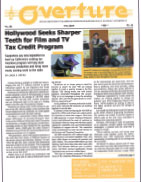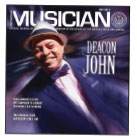The Republican-led Congress and administration have now embarked on a debate over another feature piece of legislation promised during the 2016 campaign: tax reform. At this writing, the Republican-led House of Representatives has introduced its far reaching reform proposal, which it claims focuses on a tax savings for middle-class Americans. Along with White House regulatory reforms, the House says the bill will provide tax savings and incentives for American businesses, especially those with overseas or offshore operations.
Working alongside the majority party in Congress, the White House is expecting delivery of a complete tax package to the President’s desk before Christmas. The steady grind of the legislative machine in both the US House and Senate since the end of the August recess may drive this package through (loopholes and all), especially if the House and Senate can make a final deal with disgruntled Republicans and some nationally recognized outside groups like the Mortgage Bankers Association, national real estate organizations, and others who are on the fence.
Though the philosophy of the majority party is to move this process through before too many stakeholders weigh in, there are those who believe that the package as written, containing a limit on interest deductions for new home purchases of $500,000 or more and an expansion of the standard deduction (as outlined in a November 3 New York Times article), is a losing proposition, too difficult to sell to their constituents. In the same New York Times article, others, including Congress’s Joint Committee on Taxation and the independent Tax Foundation, find that America’s highest earners would receive at least twice the tax cut that middle-class workers would get, as a percentage of their income.
Democrats, along with other outside groups who sit in opposition to the package, say that the plan is not well thought-out and is moving too quickly. It will harm, not help, middle-class Americans because it will raise taxes. Meanwhile, it will eliminate some much sought-after and expected annual tax staples such as state and local tax write-offs (businesses will continue to be able to deduct state and local taxes incurred in the conduct of a trade or business) and House reductions in the mortgage interest cap. Also, it will use funds from the elimination of important programs, such as the CHIP and state Medicaid Expansion, which were put in place to help middle-class Americans. Opponents say this, along with other loopholes, is all to help pay for a tax reform package designed to help wealthy taxpayers.
Concerns for Members
A look at the tax reform package reveals some issues—changes for the average American and for musicians and others in the media and entertainment fields.
The House Ways and Means Committee, the committee that oversees the drafting and implementation of tax legislation, has outlined what the new tax law does. You can read the Tax Cuts and Jobs Act at https://waysandmeans.house.gov/taxreform/. The committee states that the bill:
Lowers individual tax rates for low- and middle-income Americans
Eliminates special-interest deductions
Establishes a new Family Credit, which includes expanding the Child Tax Credit
Reduces the tax rate on the hard-earned business income of Main Street job creators
Significantly increases the standard deduction
Takes action to support American families
Preserves the Child and Dependent Care Tax Credit
Lowers the corporate tax rate to 20%
Opposition forces say that the bill falls short of all these goals and leaves the average American subsidizing proposals that only benefit the rich.
Yeh Shen of Local 6 (San Francisco, CA) states, “Under GOP’s tax plan, all of the necessary costs associated with maintaining a freelance career and professional activities are not tax deductible, if players continue to be paid as W-2 wage [earners].”
Winners v. Losers
But, who are the winners and losers? An article from The Hill describes who stands to gain and who stands to lose. Here’s a summary:
Winners—Corporations will see their tax rate go down from 35% to 20%. Companies would be allowed to deduct the full costs of buying new equipment for five years. And businesses that had been keeping profits overseas to avoid the 35% tax rate would be able to bring the money back, or repatriate to the US, and pay only a 12% tax for cash assets. Major business groups like the US Chamber of Commerce and the National Association of Manufacturers back provisions to lower rates for businesses, in order to move to a “territorial” tax system that exempts dividends from companies’ foreign subsidiaries and to enhance expensing of capital investments.
Super wealthy individuals will keep the top tax rate in place, but they have a lot to gain from the bill. First off, the income tax bracket thresholds increase, which will accrue savings at the top. Second, the bill would double the limit on the estate tax and then phase it out altogether. Currently, the estate tax only applies to estates of $5.5 million or more, and twice that for couples. The bill would immediately double that, giving tax shelter to anyone with an estate between $5.5 million and $11 million (or, again, double those amounts for couples). After a few years, the tax would be eliminated altogether, meaning that the very wealthiest in the country could receive their inheritances tax-free. Third, the plan would lower the taxation rates of “pass-through” corporations, or S-corps, to 25%, allowing certain business owners to claim part of their income at the lower rate. Fourth, it would eliminate the alternative minimum tax, which was intended to create a floor on tax exemptions.
Losers—Blue states, the budget deficit, universities, homeowners, and nonprofit organizations.
House v. Senate Bills
As for House and Senate bill comparisons, Sarah Babbage from Blumberg outlines direct differences in the bills. You can read her analysis at: https://about.bgov.com/blog/bgov-onpoint-comparing-house-senate-tax-bills/.
For musicians, the tax plan in its earliest form hit on two issues that would have directly impacted artists and their supporting institutions. The first was a provision in the code that provided the time and manner rules for electing capital asset treatment for certain self-created musical works. The original temporary regulatory proposal was published in the Federal Register February 8, 2008. No comments appeared in response of the proposed rulemaking and no request for a public hearing was received. The Treasury then decided to adopt the proposed regulation with some minor changes. However, on November 6, 2017, the provision was removed from the Ways and Means Manager’s Report. The Manager’s Report would have allowed a taxpayer to treat the sale or exchange of a musical composition or a copyright of their personal musical work as a capital gain or loss.
Secondly, the House bill eliminates certain language referring to business entertainment write-offs. This could mean fewer business professionals using theater, restaurant, and other performance venues as write-off activities for their clients. Section 3307 entitled “Entertainment, etc. Expenses,” denies a business deduction for entertainment, amusement, recreation, and other fringe benefits in the media and entertainment industry to embrace or entice business partners. The provision goes on to say: “No deduction otherwise allowable under this chapter shall be allowed for amounts paid or incurred for any of the following items … this may impact any entertainment, amusement, or recreation activity; membership dues; amenities not directly related to the taxpayers trade or business; or on-premise athletic facilities, not related to a trade or business.”
The Senate bill, introduced November 14, is currently under debate. We must consider that, at this writing, the House bill is still under consideration and the Senate bill, though just introduced, has additional changes. No new policy is set in stone until the chamber has a final vote on it. However, we expect those votes very soon. The AFM will continue to work with its affiliates and outside partners to help mitigate the negative effects of this legislation.








